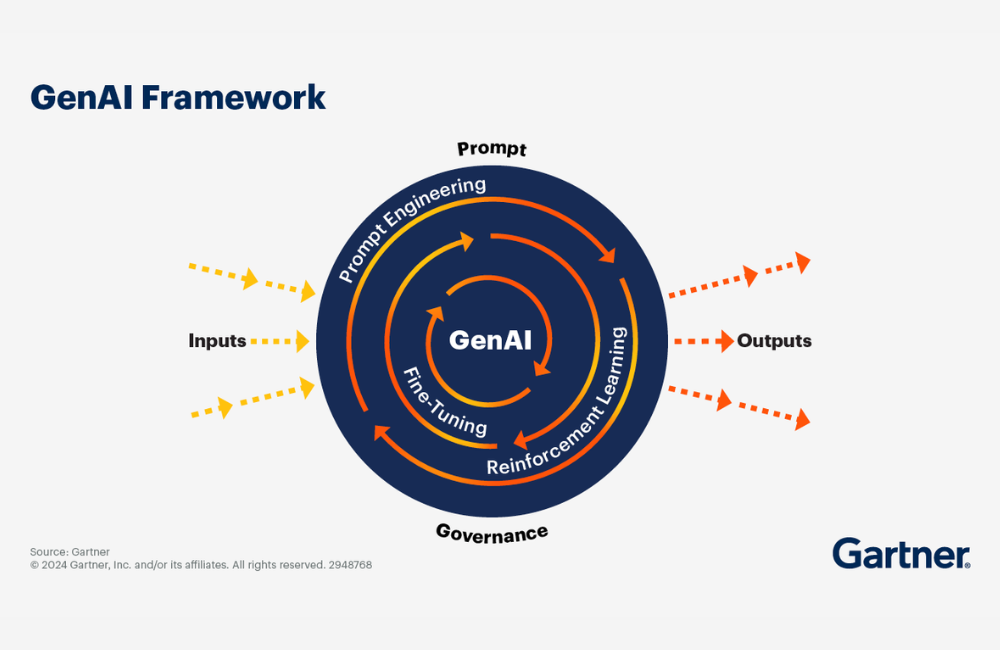Gartner, Inc., a business and technology insights company, has unveiled the 2025 Hype Cycle for Emerging Technologies. Many of the top technology innovations to watch this year support the new autonomous business era, including machine customers, AI agents, decision intelligence and programmable money.
Gartner Hype Cycles provide a graphic representation of the maturity and adoption of technologies and applications, and how they are potentially relevant to solving real business problems and exploiting new opportunities. Gartner Hype Cycle methodology gives a view of how a technology or application will evolve over time, providing a sound source of insight to manage its deployment within the context of specific business goals.
“After years of digital transformation, organizations now face new disruption as AI and automation reshape competition, customers, products, operations and leadership,” said, Marty Resnick, VP Analyst at Gartner. “In this new autonomous business era, CIOs must assess how emerging technologies can create competitive differentiation, unlock greater efficiencies and capture new growth opportunities.”
The Hype Cycle for Emerging Technologies is unique among Gartner Hype Cycles because it distills key insights from more than 2,000 technologies and applied frameworks that Gartner profiles each year into a succinct set of “must-know” emerging technologies. These technologies have potential to deliver transformational benefits within the next two to 10 years (see Figure 1).
F
Machine Customers
Machine customers are nonhuman economic actors that purchase goods or services on behalf of people or organizations. Gartner estimates three billion B2B internet-connected machines can act as customers today, growing to eight billion by 2030. Examples include virtual personal assistants, smart appliances, connected cars and Internet of Things (IoT)-enabled factory equipment.
“Machine customers will play an important role in industries like manufacturing, retail and consumer goods, unlocking new revenue and efficiency opportunities,” said Resnick. “To capitalize, organizations must reimagine their business models or risk being left behind.”
AI Agents
AI agents can perceive, make decisions, take actions and achieve goals in their digital or physical environments to help organizations meet their objectives. By using tools like LLMs, organizations are creating and deploying AI agents to handle complex tasks. These agents could transform many industries by automating work in areas like consumer services, industry, data analysis, content creation and logistics.
Trust in AI agents remains limited due to concerns about their ability to accurately predict and execute tasks. Without human oversight, AI agents could make important decisions quickly before anyone notices. Gartner recommends organizations factor AI agents into strategic planning by understanding their capabilities and applications, especially as they become more independent and easier to use.
Decision Intelligence
Decision intelligence is a practical discipline that advances decision making by understanding and engineering how decisions are made, as well as how outcomes are evaluated, managed and improved via feedback. By digitizing and modeling decisions as assets, it bridges the insight-to-action gap to continuously improve decision quality, actions and outcomes.
“Agentic AI and generative AI hype, regulatory pressures on decision automation and recent global uncertainty have revealed weaknesses in traditional business processes and decision making,” said Christian Stephan, Senior Director Analyst at Gartner. “In response, organizations now demand decision processes that deliver speed and quality, but are also consistent, compliant, cost-effective and capable of handling complexity and change.”
Programmable Money
Programmable money is any form of digital money that can be programmed using software that determines its operation based on algorithmic criteria. It can rely on blockchain-enabled tokenization and smart contracts to increase the participation of economic actors and program value exchanges. Organizations will be required to engage with programmable money to connect with machine customers as new types of customers, as well as business peers and employees.
“Programmable money is transformative for financial services providers, enabling new forms of currency and digital asset markets,” said Stephan. “It drives innovation in value creation, financing, and asset exchange, including machine-to-machine trading, reshaping supply and financial value chains.”








